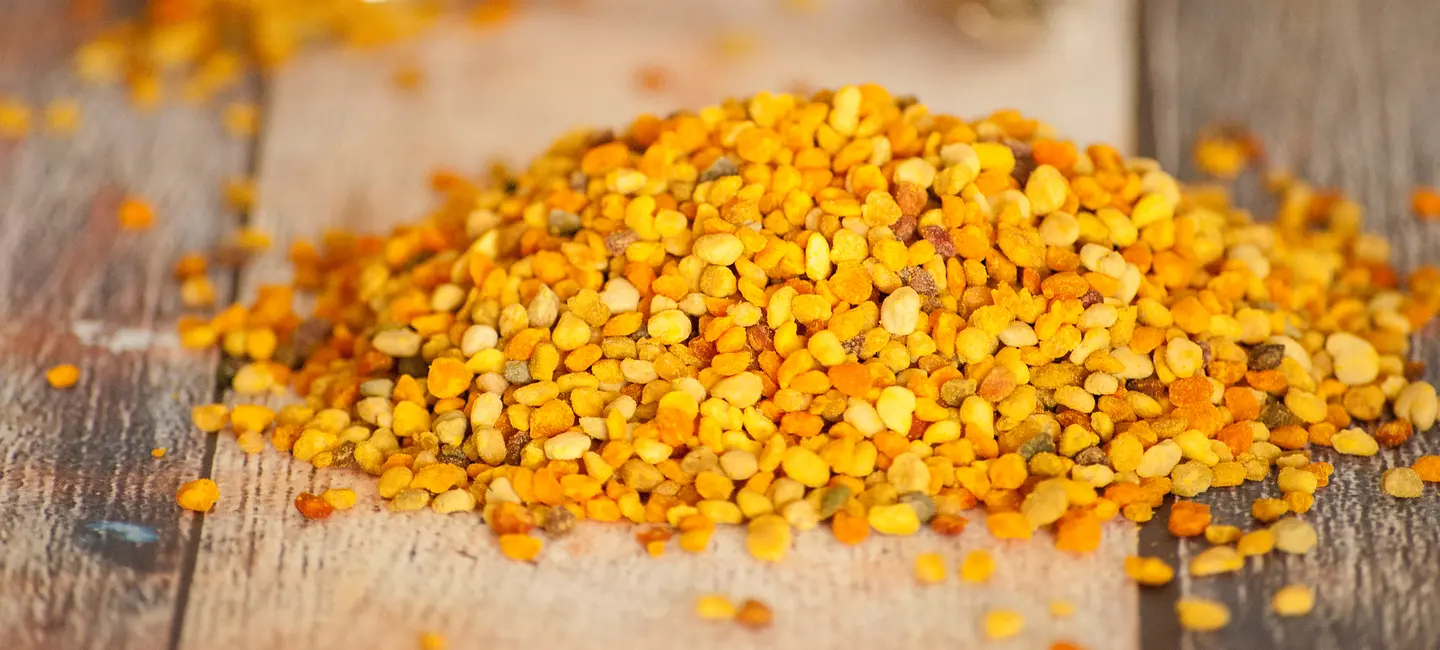
Bee pollen is flower pollen that's collected by worker bees, mixed with nectar and bee saliva, and then packed into honeycomb cells in the hive.
Bee pollen might help stimulate the immune system, but it's not clear how bee pollen causes these effects.
People take bee pollen for athletic performance, hay fever, eczema, constipation, obesity, and many other conditions, but there is no good scientific evidence to support these uses. There is also no good evidence to support using bee pollen for COVID-19.
Bee pollens come from many different plants, so the contents of bee pollen can vary significantly. Don't confuse bee pollen with beeswax, bee venom, honey, propolis, or royal jelly. These other bee products are not the same.
Is It Effective?
NatMed Pro rates effectiveness based on scientific evidence according to the following scale: Effective, Likely Effective, Possibly Effective, Possibly Ineffective, Likely Ineffective, Ineffective, and Insufficient Evidence to Rate.
- Athletic performance. Taking bee pollen by mouth doesn't seem to improve athletic performance.
There is interest in using bee pollen for a number of other purposes, but there isn't enough reliable information to say whether it might be helpful.
Is it Safe?
When taken by mouth: Bee pollen is possibly safe when used for up to 30 days. It's usually well-tolerated, but some people might experience allergic reactions.
Special Precautions & Warnings:
Pregnancy: Taking bee pollen by mouth is possibly unsafe during pregnancy. It might stimulate the uterus and threaten the pregnancy. Don't use it.
Breast-feeding: There isn't enough reliable information to know if bee pollen is safe to use when breast-feeding. Stay on the safe side and avoid use.
Pollen allergy: Bee pollen can cause serious allergic reactions in people who are allergic to certain types of pollen. Symptoms can include itching, swelling, shortness of breath, light-headedness, and a severe reaction called anaphylaxis.
Warfarin (Coumadin)
Interaction Rating=Moderate Be cautious with this combination.
Bee pollen might increase the effects of warfarin. Taking bee pollen with warfarin might result in an increased chance of bruising or bleeding.
There are no known interactions with herbs and supplements.
There are no known interactions with foods.
There isn't enough reliable information to know what an appropriate dose of bee pollen might be. Keep in mind that natural products are not always necessarily safe and dosages can be important. Be sure to follow relevant directions on product labels and consult a healthcare professional before using.
Information on this website is for informational use only and is not intended to replace professional medical advice, diagnosis, or treatment. While evidence-based, it is not guaranteed to be error-free and is not intended to meet any particular user’s needs or requirements or to cover all possible uses, safety concerns, interactions, outcomes, or adverse effects. Always check with your doctor or other medical professional before making healthcare decisions (including taking any medication) and do not delay or disregard seeking medical advice or treatment based on any information displayed on this website.
© TRC Healthcare 2024. All rights reserved. Use and/or distribution is permitted only pursuant to a valid license or other permission from TRC Healthcare.
